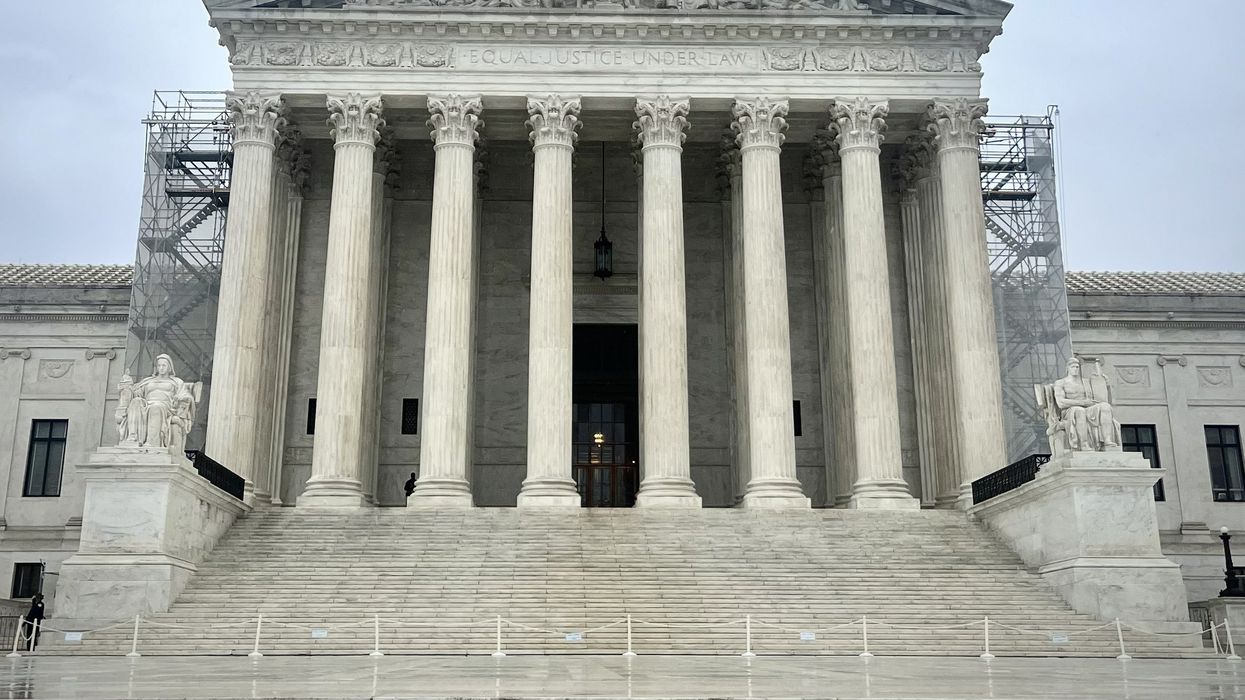Tang and Elkowitz are undergraduate students at Northwestern University's Medill School of Journalism.
While much of the attention on the Supreme Court in recent days has focused on cases involving former President Donald Trump, the justices recently heard oral arguments on a subject that garnered national attention in 2017.
On Feb. 28, the court wrestled with how to interpret the National Firearms Act of 1934, which includes an ambiguous definition of “machine gun,” in a case to determine whether firearms with bump stocks should receive that classification.
The case involves bump stocks, which were used in the 2017 mass shooting in Las Vegas, are defined by the Bureau of Alcohol, Tobacco, Firearms and Explosives as “devices that allow a semiautomatic firearm to shoot more than one shot with a single pull of the trigger.” The two sides in Garland v. Cargill diverged in their definition of trigger.
“That's the language we're stuck with,” lamented Justice Brett Kavanaugh, acknowledging the law was originally passed as a direct response to gang violence during the Prohibition era.
A bump stock harnesses the recoil energy from the initial trigger of a firearm, allowing it to continuously shoot without active intervention after the first shot.
In 2002, the ATF deliberated over a particular bump stock known as the Akins Accelerator. The ATF determined that under the 1934 statute, the bureau could not regulate the Atkins Accelerator because it required repeated pulls of the trigger to fire multiple shots. However, in 2006, the ATF revisited its ruling and determined that bump stocks like the Atkins Accelerator were machine guns.
Since then, many different bump stocks have emerged, leading to several ATF rulings between 2008 and 2017 that excluded them from the machine guns designation. After the Las Vegas music festival shooting in which 60 people were killed, making it the deadliest mass shooting in U.S. history, the ATF under the Trump administration redefined bump stocks as machine guns. The decision exposed bump stock owners to criminal liability if they did not destroy or turn in the devices by March 26, 2019.
Michael Cargill, the owner of Central Texas Gun Works, challenged the ruling when it went into effect in 2019. A federal district court sided with the ATF, contending that the ruling abides by the best interpretation of the statute.
“The case is about whether or not the ATF have the authority to promulgate this rule, not whether or not it is constitutional under the Second Amendment to regulate bump stock,” Kelly Roskam, director of law and policy at the Johns Hopkins Center for Gun Violence Solutions, said in an interview with Medill News Service.
“Those weapons do exactly what Congress meant to prohibit when it enacted the prohibition on machine guns,” attorney Brian Fletcher argued before the Supreme Court on behalf of Attorney General Merrick Garland and the federal government.
Fletcher maintained that it would be “irresponsible” for the ATF to overlook its previous judgment that bump stocks were not machine guns in light of the Las Vegas shooting.
Cargill’s argument rested on the back-and-forth movement of the trigger between shots and the human intervention required to keep shooting. In contrast, Garland’s position hinged on the technicality that the shooter is no longer actively controlling the trigger after the first shot and thus is initiating a continuous cycle of fire.
The U.S. Appeals Court for the Fifth Circuit sided with Garland, judging that Congress willfully excluded trigger finger movement when constructing the statute. Cargill soon after appealed that decision to the Supreme Court.
“The trigger is the device that initiates the firing of the weapon. A bump stock does not change the trigger in any way,” Jonathan Mitchell, attorney for Cargill, said during oral arguments.
Justice Ketanji Brown Jackson doggedly questioned Mitchell, homing in on the intent of Congress.
“Why would Congress want to prohibit certain things based on whether the trigger is moving as opposed to certain things that can achieve this, you know, lethal kind of spray of bullets?” asked Jackson.
Both Jackson and Justice Elena Kagan maintained that though the mechanisms may differ, a semi-automatic gun equipped with a bump stock and a typical machine gun have the same capability.
“At some point, you have to apply a little bit of common sense to the way you read a statute and understand that what this statute comprehends is a weapon that fires a multitude of shots with a single human action,” said Kagan.
Mitchell, however, continued to insist upon a difference between the function of bump stocks and that of machine guns.
“It has a very high rate of fire, but it's not automatically fired,” replied Mitchell.
If the court rules in favor of the government, the ban on the ownership and transfer of bump stocks will remain in effect.
If the justices side with Cargill, Americans will be able to possess and purchase bump stocks unless Congress or state legislative bodies enacts new laws.
“The ATF doesn't have the power to make something a crime that wasn't a crime before. It's not a crime to violate the rule,” said Fletcher. “It has been and always will be a crime to violate the statute.”



















Marco Rubio is the only adult left in the room